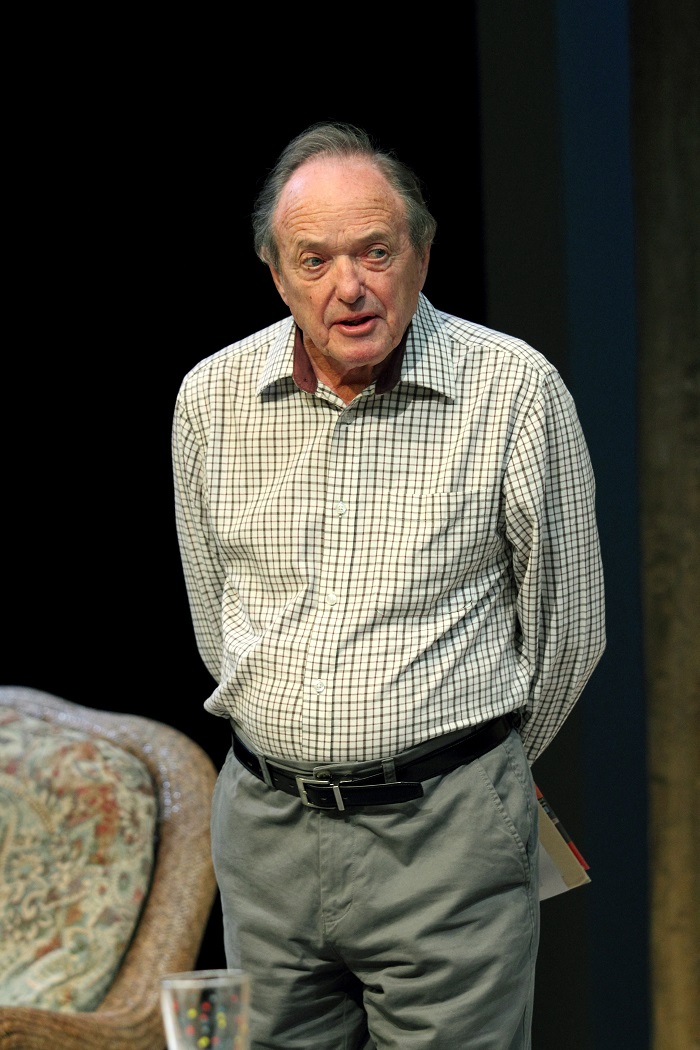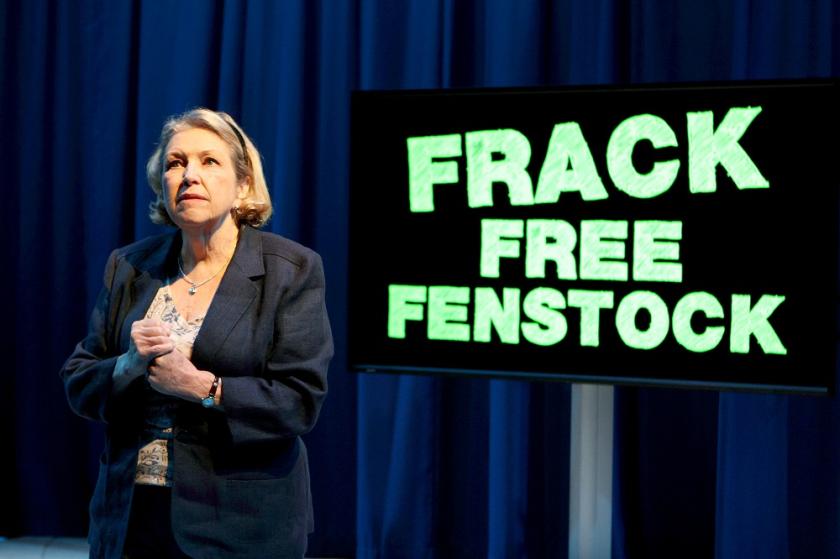If you’d asked me five years ago whether I might one day write a comedy about fracking, I’d have wondered whether you were entirely in possession of your faculties. Not because fracking sounds dull and boring (although let’s be honest, it does), but because the business of fracking had never really caught my attention.
That changed when I stumbled on some photographs of the effect of fracking on the landscapes of Pennsylvania, Texas, and North Dakota. From the air, some areas of those States resembled the surface of the moon. Astonishing then that dozens more states were giving the go-ahead to fracking or, to give it its full catchy title, high-pressure hydraulic fracturing – a technique by which millions of litres of water, sand and chemicals are injected at high pressure into shale rock a mile or more down in order to allow gas or oil to flow to the surface.
Passionate, committed people may be admirable, but they can also be ridiculous
I lazily assumed that nothing so devastating could possibly come to our still green and intermittently pleasant land. Wrong. In 2012, test drilling with potential for fracking was proposed right next to the village of Balcombe, in West Sussex. The locals didn’t like it. Well, some did, some didn’t. The village was split – though judging by the protests that erupted, the enthusiasts were outnumbered by the sceptics. Soon Balcombe had become the key battleground of the Great Fracking Wars. From news reports, I began to wonder whether fracking was giving birth to a new kind of protest.
Interested, I headed down to Balcombe. There I soon realised that the traditional English divides of class, age, gender and politics were being blown apart. I came across red-faced, overweight, middle-aged chaps in blazers who were heartily in favour of fracking. I also came across red-faced, overweight, middle-aged chaps in blazers who were utterly appalled by fracking. I found neat, quietly-spoken, law-abiding Telegraph readers limbering up to take direct action alongside earnest Guardianistas with Ottolenghian tendencies. I found octogenarians casting aside zimmer frames to link arms with angry youth. I found Daily Mail readers linking arms with what a rather unpleasant character in my play calls unwashed skunk-befuddled hippies with a vocabulary of 300 words and a tendency to call other people scum. (Unfair, yes, I know, but what’s a satire that doesn’t offend everyone?)
 Most of all, however, I was struck by the number of formidable women who were – and are – in the forefront of the campaign, not only in Balcombe but anywhere in Britain where fracking looms. These campaigners are of all ages, but include many incredibly strong and determined older women. And that’s when I realised there was a play to write, not about fracking, but about people whose lives are transformed, for better or for worse, by the prospect of a hitherto unknown threat to their way of life. Calm, orderly lives thrown into confusion, it’s the stuff of drama, and the stuff of drama (with a few exceptions) is also the stuff of comedy.
Most of all, however, I was struck by the number of formidable women who were – and are – in the forefront of the campaign, not only in Balcombe but anywhere in Britain where fracking looms. These campaigners are of all ages, but include many incredibly strong and determined older women. And that’s when I realised there was a play to write, not about fracking, but about people whose lives are transformed, for better or for worse, by the prospect of a hitherto unknown threat to their way of life. Calm, orderly lives thrown into confusion, it’s the stuff of drama, and the stuff of drama (with a few exceptions) is also the stuff of comedy.
Almost overnight I had my central character, the redoubtable Elizabeth (Anne Reid), a gentle retired lecturer who in the course of the play is transformed into an out-and-out rebel. Having witnessed a few weary and faintly battered spouses attached to these formidable women, I gave Elizabeth a somewhat testy husband (James Bolam, pictured above) who longs for the old quiet life of shepherd’s pie and games of scrabble by the fire. These two end up taking on the combined forces of an energy company and a ruthless PR agency.
Passionate, committed people may be admirable, but they can also be ridiculous, as they lose all perspective in an ardent pursuit of victory. So there is laughter directed against both sides, because a play is not a sermon, or at least ought not to be. But am I entirely neutral in how I portray the frackers and the anti-frackers? Absolutely not. As I allow my heroine to suggest towards the end of the play, if we don’t keep the carbon in the ground we’re not going to have a planet fit for human life. I think that’s what might be called a serious comedy.
- Fracked! or Please Don't Use the F-Word opens at the Yvonne Arnaud Theatre, Guildford on 12th April and then tours to Malvern, Brighton, Richmond, Bath and Cambridge.
© Alistair Beaton 2017















Add comment